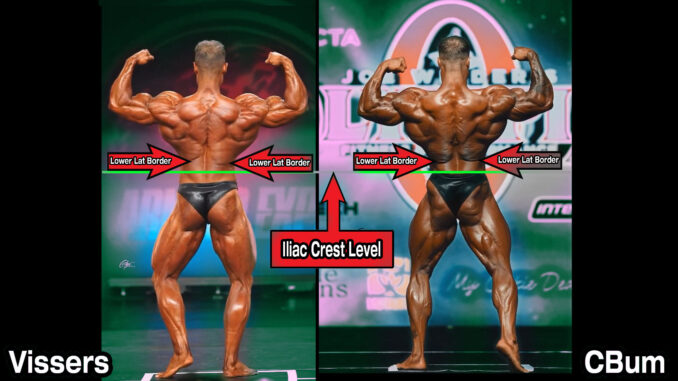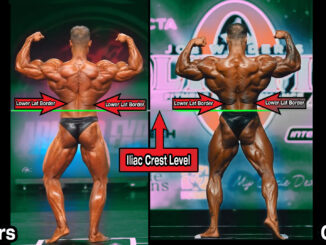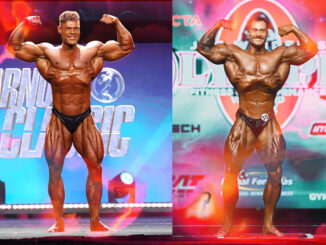
In the much-anticipated showdown between Wesley Vissers and Chris Bumstead, Part 2 delves into the intricacies of their upper body V-taper. Bumstead’s renowned narrow waist plays a pivotal role in accentuating the illusion of longer lats, seamlessly continuing down to his hips, where his taper culminates with inward-tapering obliques. Derek Lunsford emphasizes the significance of “non-lats” components(watch video), including the lats themselves, teres major, and serratus anterior, all contributing to the coveted V-taper effect. However, contemporary bodybuilders often don’t accentuate the lower portion of their obliques, a contrast to legends like Frank Zane.
In contrast, Vissers presents a distinct silhouette with his lats positioned higher, prompting a comparison with Bumstead’s back double biceps pose. While Bumstead boasts a more developed gluteus medius, partially obscured by his posing trunks, Vissers’ gluteus medius appears underdeveloped in comparison. The visual marker separating the upper and lower body, typically perceived as the trunk line, is higher on Vissers due to his less delineated gluteus medius and lower trunk height. Consequently, despite similar distances between the lower lats and iliac crest, Vissers’ lack of gluteus medius development creates the impression of an elongated, underdeveloped lower back region(see video).




Be the first to comment